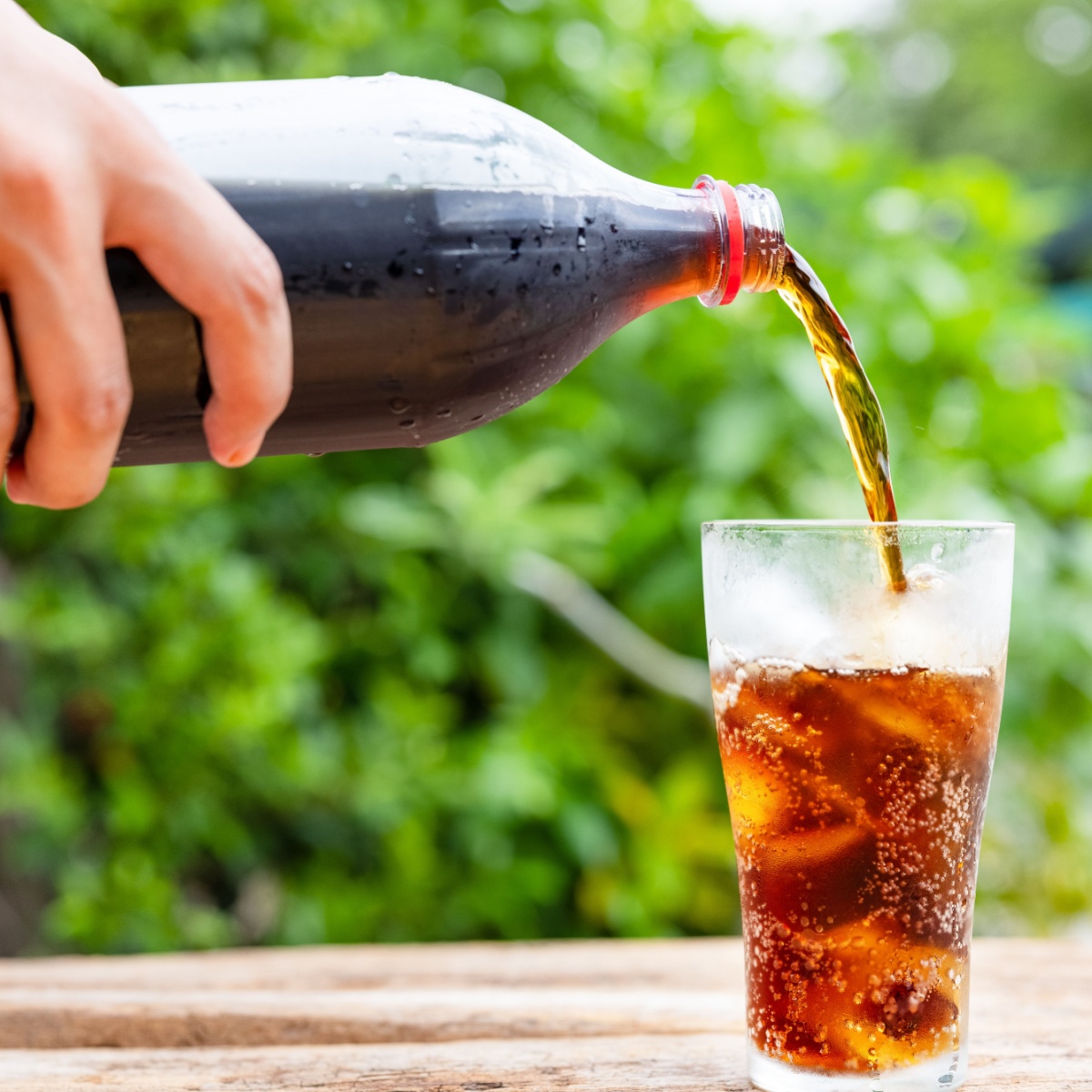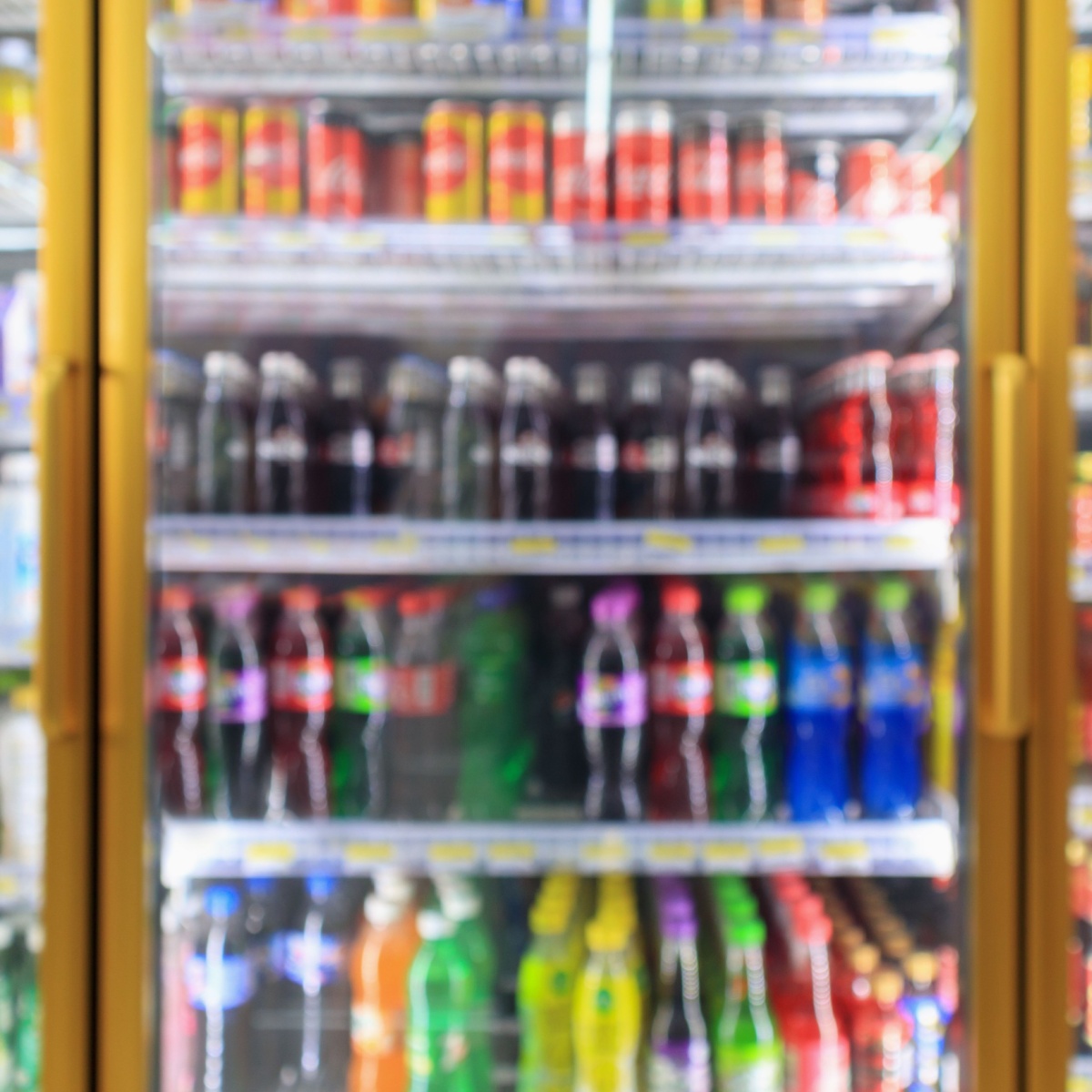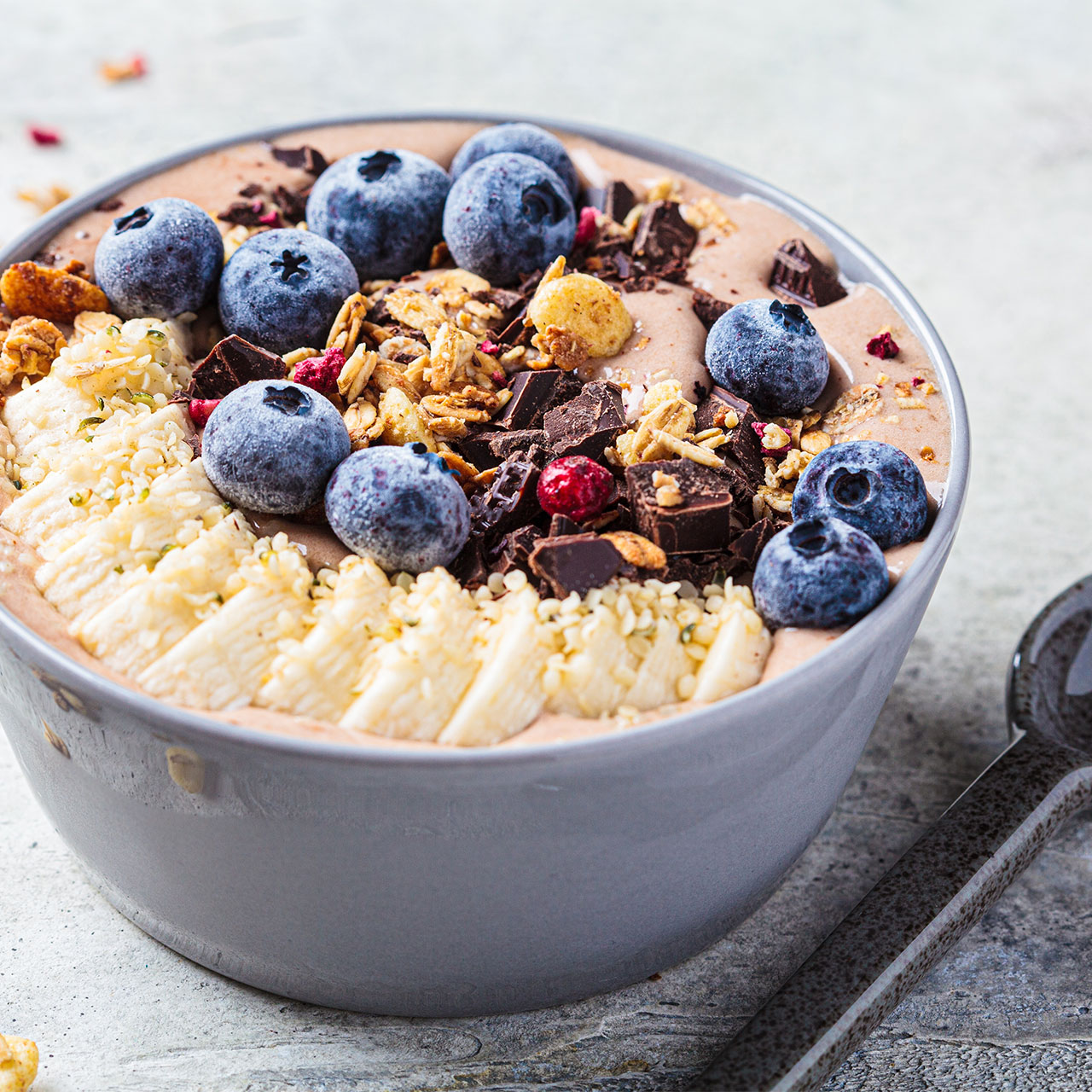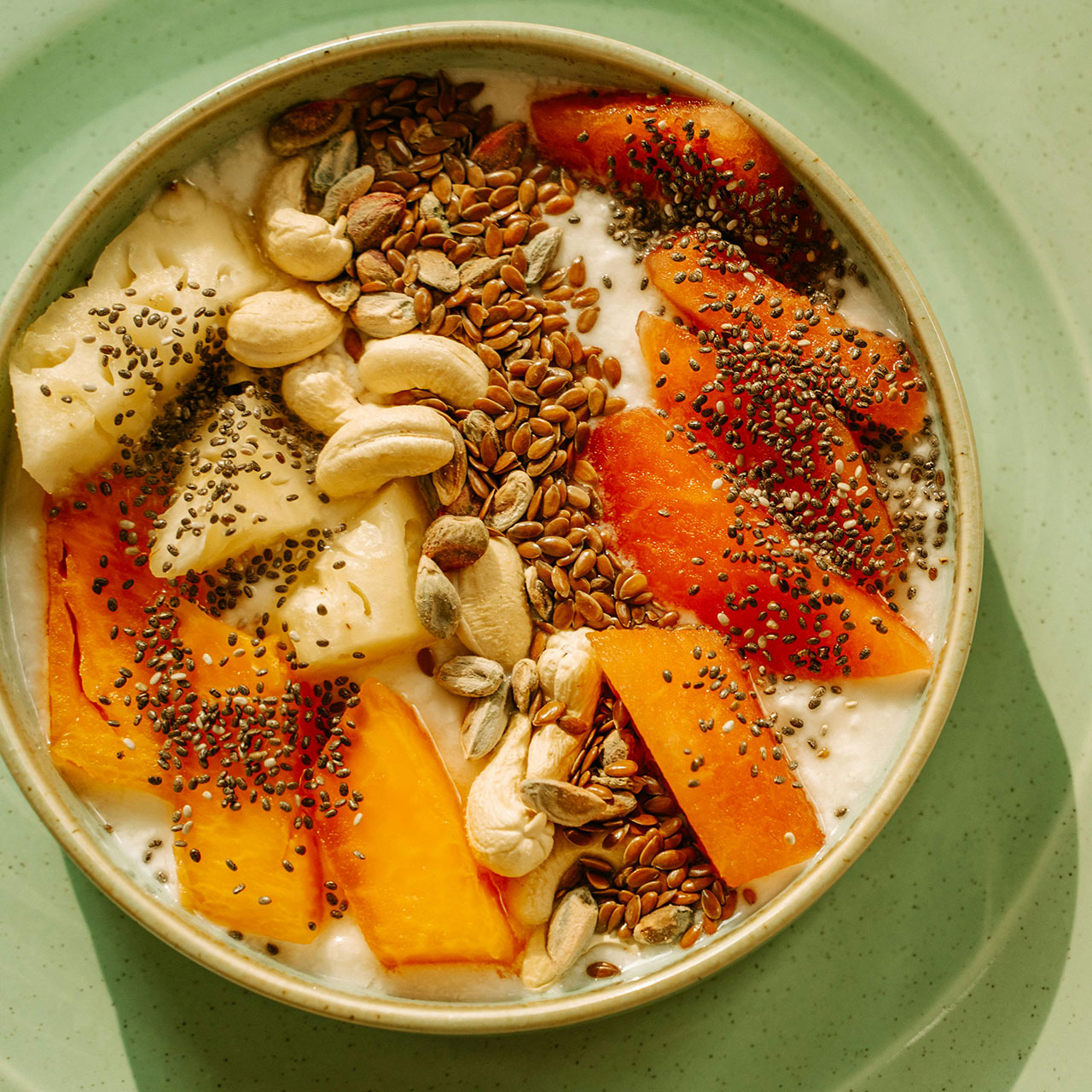Anxiety, Alzheimer’s, and cognitive decline are interconnected aspects of mental health that significantly impact well-being, particularly as people get older. Anxiety disorders can lead to stress and inflammation, which are closely linked to brain function. Alzheimer’s causes progressive memory loss, confusion, and cognitive decline. Cognitive decline refers to a gradual loss of cognitive abilities such as memory, attention, and problem-solving.
While lifestyle factors like diet and exercise are widely acknowledged to influence brain health, some unexpected beverages may contribute to these issues.
We checked in with several health experts to discover seven drinks you should avoid if you want to minimize anxiety, Alzheimer’s, and cognitive decline. Some of the worst culprits included caffeinated energy drinks, fruit juice, alcohol, and more. Read on to learn more.


1. Fruit Juices
While fruit juice is often seen as a healthy beverage, particularly due to its vitamin content, frequent consumption of processed or sugary juices can have unexpected consequences on brain health.
"The natural fruit juice consists of vitamins; however, the extra sugars in it lead to insulin insensitivity and promote inflammation, which may hinder brain working and lead to the creation of Alzheimer’s," says Dr. Michael O. McKinney, physician at Healthy Outlook.

2. Diet Sodas (artificially sweetened)
Diet soda has been marketed as a healthier alternative to regular high-sugar sodas, but research has shown it may have an unintended negative impact on the brain. They contain artificial sweeteners like aspartame, saccharin, or sucrose that have been shown to interfere with brain chemistry.
"[Cancer-causing] chemicals, including aspartame, affect neurotransmitters’ functioning and cause anxiety and depression. This has an impact on the chemicals in the brain and results in poor performance of the brain functions," says McKinney.

3. Alcohol
While alcohol can initially have a calming effect by depressing the central nervous system, as it wears off, it can disrupt neurotransmitter balance, leading to increased anxiety. It is also known to increase inflammation and oxidative stress in the body and brain.
"Regular use of alcohol leads to shrinkage of brain functioning, and the probability of dementia is higher with this kind of behavior. It alters the chemical concentrations in the brain and affects the brain cells that makeup memory and cognitive processes," notes McKinney.

4. Caffeinated Energy Drinks
In moderate amounts, the caffeine in energy drinks can enhance focus and energy. However, in large doses (which is the amount added in many energy drinks), it can lead to overstimulation of the nervous system, causing symptoms of anxiety such as nervousness, irritability, restlessness, and heart palpitations.
McKinney adds, "Caffeine, when taken in large quantities, can cause anxiety and disturb healthy sleep, which over the long term reduces brain intelligence levels. All these have been made possible by the high sugar content in most energy drinks; this leads to insulin resistance, which plays a vital role in enhanced cognitive degradation."

5. Flavored Coffees (with added sugars and creamers)
While plain coffee can have health benefits, the average consumer typically opts for the ones that are loaded with sugary toppings and ingredients. Many creamers used in flavored coffees contain unhealthy trans fats or partially hydrogenated oils. These fats have been shown to increase inflammation and oxidative stress in the brain. Long-term consumption of high-fat, low-nutrient creamers can lead to brain atrophy and decrease neuroplasticity; this can worsen memory problems and impair learning.
"Coffee itself may have benefits, but many flavored coffee drinks contain added sugars, syrups, and high-fat creamers that can damage cognitive health. These ingredients, when taken consistently, can contribute to inflammation, insulin resistance, and even impact mood regulation, heightening anxiety and potentially harming cognitive functions over time," says Laura Geiga, MD.

6. Sugary Soda
Drinking regular sodas can mess with your mental health and brain over time. The high sugar content causes blood sugar spikes and crashes, which can lead to mood swings and increased anxiety. Over time, the habit of drinking sodas can impact your insulin levels, making it harder for your brain to stay sharp and contributing to long-term memory issues.
Veronica West, psychologist and founder of My Thriving Mind, states, "The ultimate sugar bomb, sodas send your blood sugar on a roller coaster ride. Sure, you get a quick energy boost, but soon after comes the crash, leaving your brain foggy and your anxiety up. It’s like telling your brain, 'Let’s sprint!' only to make it trip over itself moments later."

7. Drinks With High Fructose Corn Syrups
You may have seen high-fructose corn syrup as an ingredient in a variety of drinks and even packaged foods. The truth is that this ingredient is very detrimental to not just your brain but your overall health. Dr. Julia Renedo, clinical, counseling, and consulting psychologist, says we should avoid these at all costs, including "beverages with added sugars such as sucrose and high fructose corn syrup."
Found in a lot of processed foods and drinks, HFCS can spike blood sugar, causing mood swings and anxiety, while also triggering inflammation in the brain. It can also speed up the aging of the brain, making conditions like Alzheimer’s more likely down the road.


























